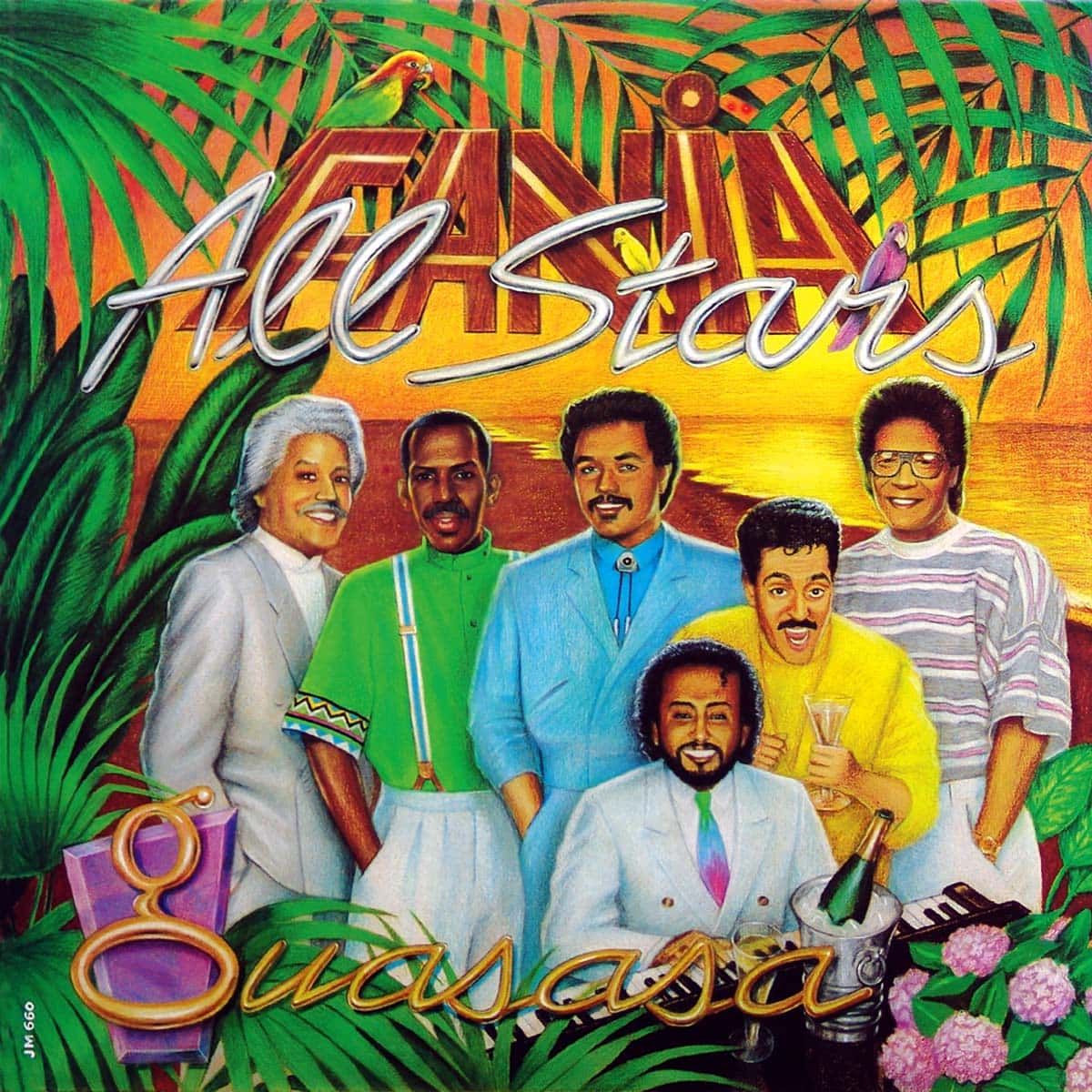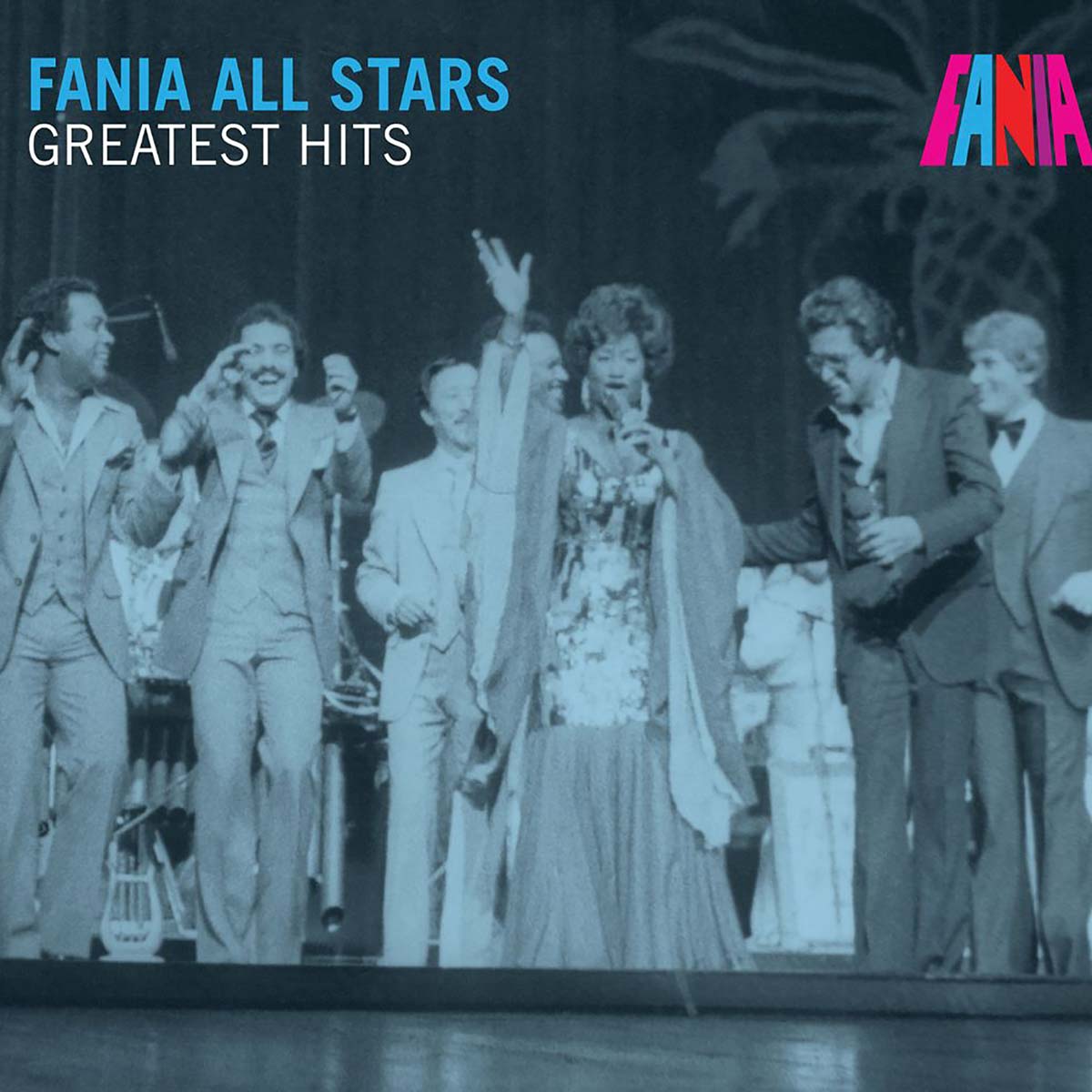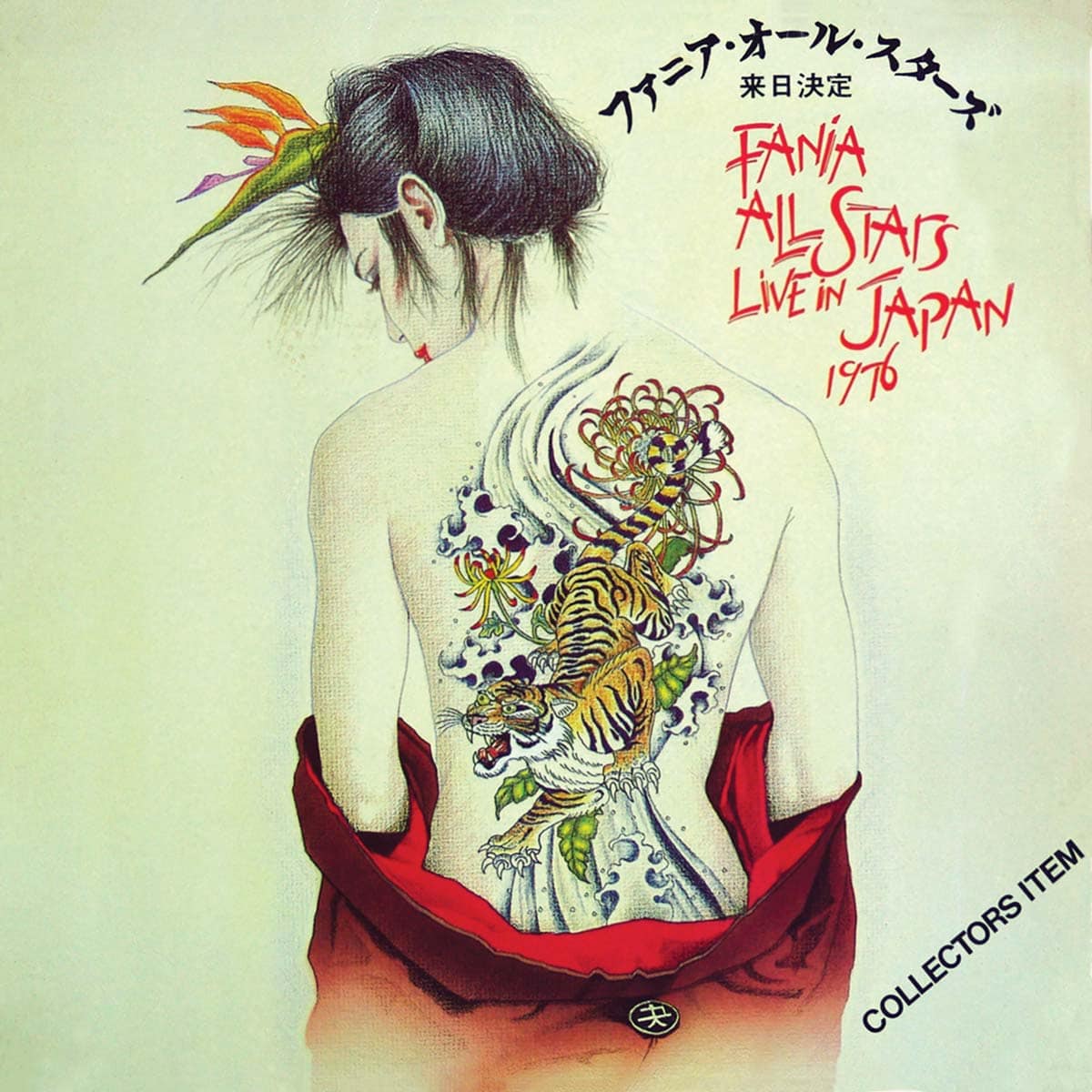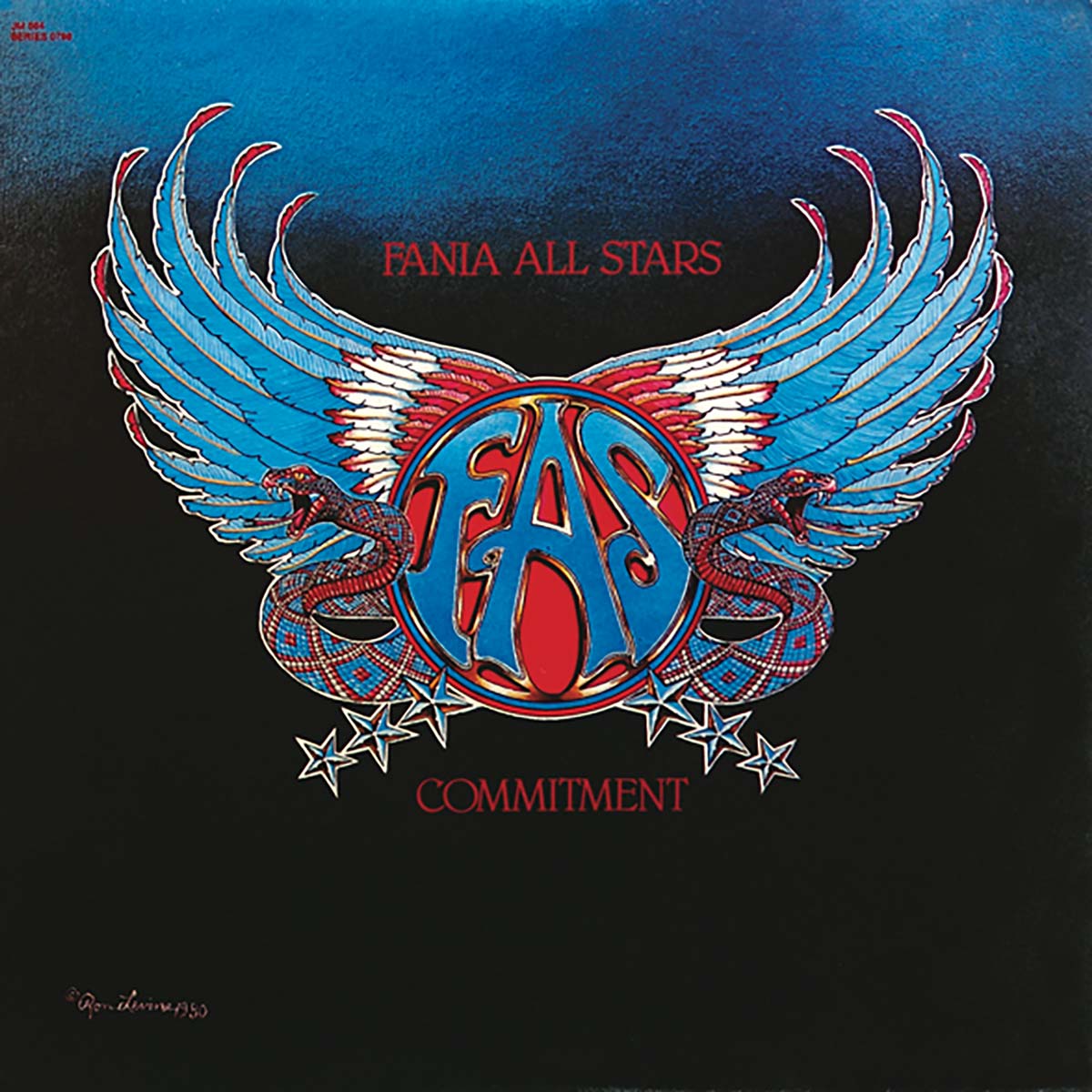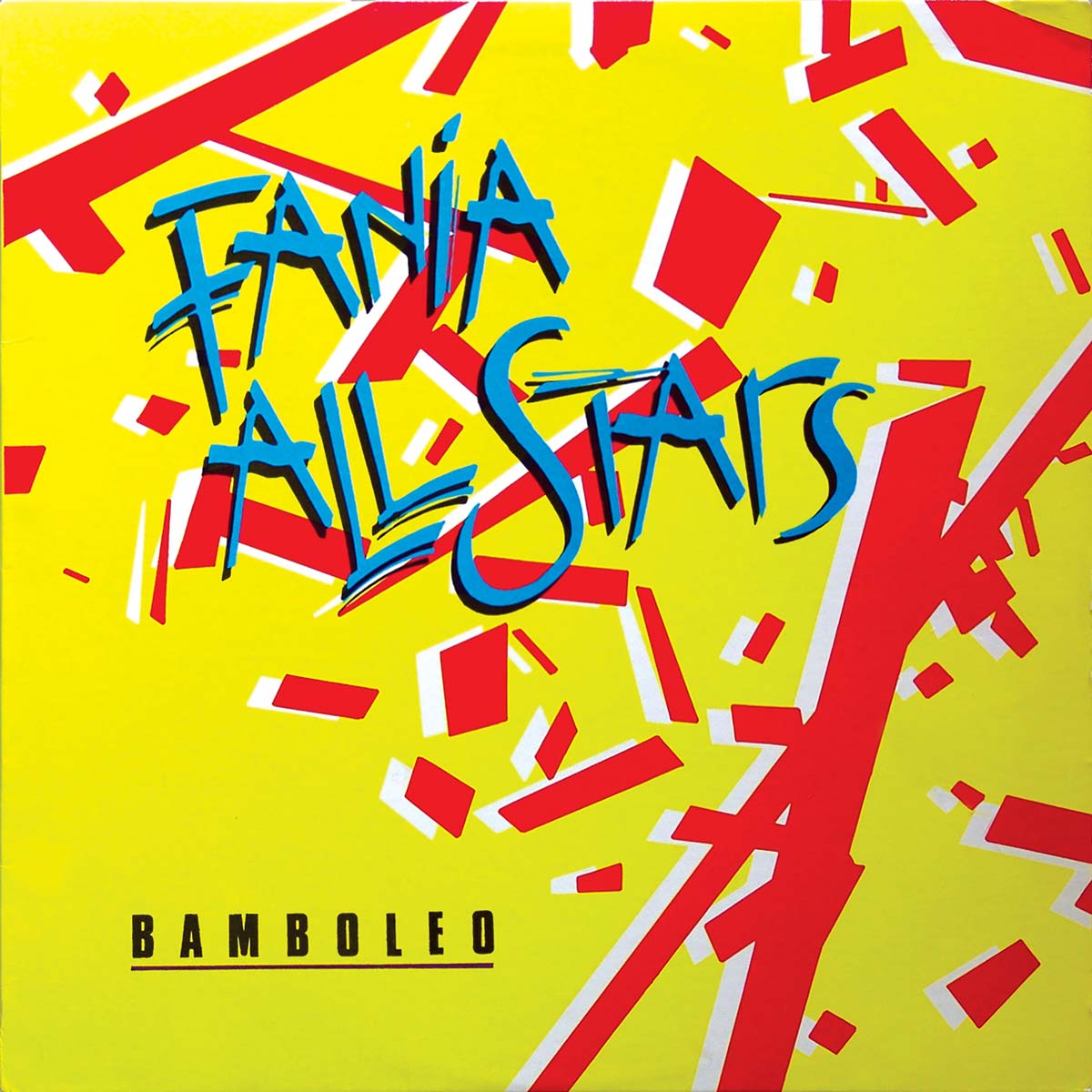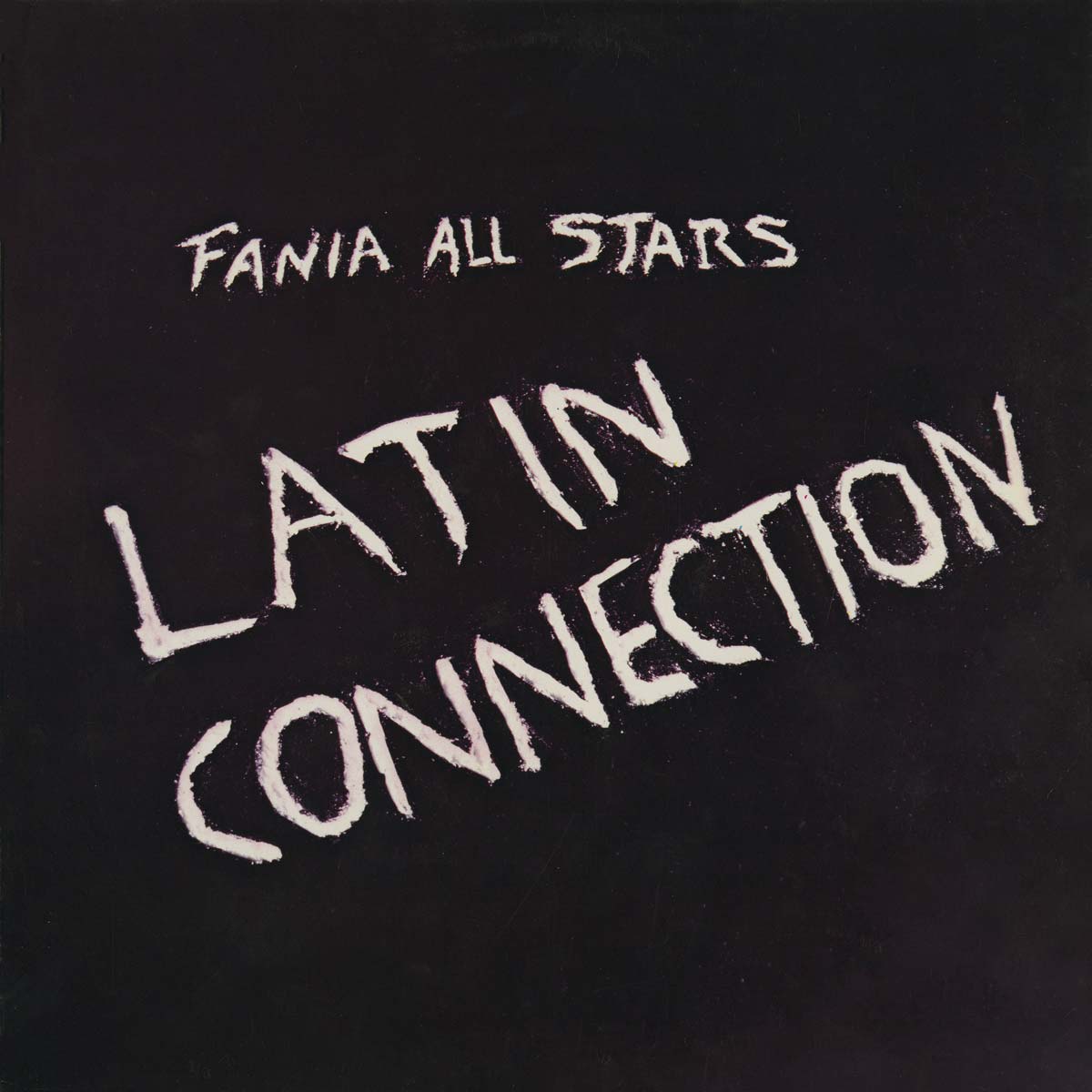
LATIN CONNECTION FANIA ALL STARS The sound of strings and symphonic orchestrations got hold of the New York salsa scene, following the experiments that Willie Colón had pioneered in the albums Solo and Maestra Vida. Justo Betancourt, Sonora Ponceña, Ismael Quintana, Roberto Roena and a number of other artists incorporated violins to their productions, partly as a response to the trend established at the time by international romantic ballads. The Fania All Stars was no exception.
Released in 1981, Latin Connection boasted arrangements by Louis García, Louie Ramírez, José Madera, Javier Vázquez and Francisco Zumaque, who achieved a perfect balance between hot numbers along the lines of ’70s salsa, as well as elaborate arrangements with harmonic embellishments that were strange to the genre, such as “Semilla de Amor,” “El Caminante” and the bolero “La Montaña”– performed by Santitos Colón, and bringing to mind the orchestrations that Argentine Jorge Calandrelli had written for his album Fiel.
At the same time that it was busy preparing the release of the four album recorded for Columbia Records mixing jazz, rock, soul and dance, the Fania All Stars was careful to remember the salsa market, even though the band was unable to repeat the sheer magic of its performances at the Cheetah nightclub. The sequel to 1980’s Commitment, Latin Connection allowed the Fania All Stars to revalidate its position as one of salsa’s most powerful combos. The production, conceptualized by Johnny Pacheco and Jerry Masucci, capitalizes on the presence of some of the band’s most respected voices. The arrangements give the musicians an opportunity to showcase their virtuoso chops, with a rhythm section anchored on Eddie Montalvo, Roberto Roena and Nicky Marrero on percussion, joined by Salvador Cuevas on electric bass. “Semilla de amor” delivers the record’s most complex arrangement, blessed with dynamic strings and a son montuno framed by a symphonic choir. It features Héctor Lavoe and trumpet player Juancito Torres, who delivers solos marked by a jazzy sensibility. Lavoe sings about a happy father celebrating the birth of his first son.
A recipe for all those who feel lonely in love, “Dime Qué Te Pasa” finds Adalberto Santiago distilling the essence of the bomba and plena, the first time that the Fania All Stars approached Puerto Rican folklore in the studio, with notable appearances by Eddie Montalvo on quinto and Luis “Perico” Ortiz on trumpet. Willie Colón’s “Voy A Vivir Para Siempre” introduces the flourishes of Johnny Pacheco on the flute, which brings to mind his performance of “El Manicero” on the band’s Rhythm Machine LP. The theme of the artist who gains immortality through his work was also tackled in Colón’s Corazón Guerrero. One of the album’s most challenging tracks as far as the dancers are concerned is “Nina,” a performance by Cheo Feliciano of the santería themed song penned by Justi Barreto. Louie Ramírez shines on the vibes.
After performing “El Nazareno” and “Cúcala” with Celia Cruz during a Fania All Stars concert at the Coliseo Roberto Clemente, Ismael Rivera was invited to record “Bilongo.” Even though his voice lacked in strength and brilliance, it had lost none of his usual understanding of the clave, as well as a sonero’s ability to challenge the choruses. A solo by Roberto Roena is celebrated by Maelo, who had not collaborated with the percussionist and dancer since the Juntos Otra Vez LP, recorded with Cortijo in 1974. The queen of rumba, Celia Cruz can be heard on the merengue “Mi Son Den Boso,” performed in papiamento in honor of her fans in Curazao and Aruba. Latin Connection concludes with Pete “El Conde” Rodríguez singing the Tite Curet Alonso composition “Rosa En El Fango,” about a prostitute who, ironically, sweetens the bitterness of his existence and restores his faith in love. Latin Connection is a strong album.
This reissue gives us a good opportunity to remember the contributions to salsa culture by the late Juancito Torres, Héctor Lavoe, Santos Colón, Celia Cruz, Pete “Conde” Rodríguez, Ismael Rivera, Louie Ramírez and Jerry Masucci. May they rest in peace. Credits Salvador Cuevas – Electric Bass Papo Lucca – Piano Eddie Montalvo – Congas Nicky Marrero – Timbales Roberto Roena – Bongos, Cowbell Yomo Toro – Cuatro Juan “Juancito” Torres – Trumpet Luis “Perico” Ortiz – Trumpet Héctor “Bomberito” Zarzuela – Trumpet Tony Barrero – Trumpet Reinaldo Jorge – Trombone Leopoldo Pineda – Trombone Lewis Khan – Trombone Ismael Quintana – Maracas Singers – Héctor Lavoe (“Semilla De Amor”), Adalberto Santiago (“Dime Qué Te Pasa”), Willie Colón (“Voy A Vivir Para Siempre”), Cheo Feliciano (“Nina”), Ismael Rivera (“Bilongo”), Celia Cruz (“Mi Son Den Boso”), Ismael Miranda (“El Caminante”), Santos Colón (“La Montaña”), Pete “El Conde” Rodríguez (“Rosa En El Fango”) Producer – Jerry Masucci Recording Director – Johnny Pacheco Arrangements – Francisco Zumaque (“Semilla De Amor”) , José Madera (“Dime Qué Te Pasa”), Louis García (“Voy A Vivir Para Siempre,” “Nina,” “El Caminante,” “La Montaña,” “Rosa En El Fango”), Javier Vázquez (“Bilongo”), Louis Ramírez (“Mi Son Den Boso”) Original Album Photography – Frank Kolleogy Original Album Cover Design – Ron Levine
Written by Jaime Torres Torres


